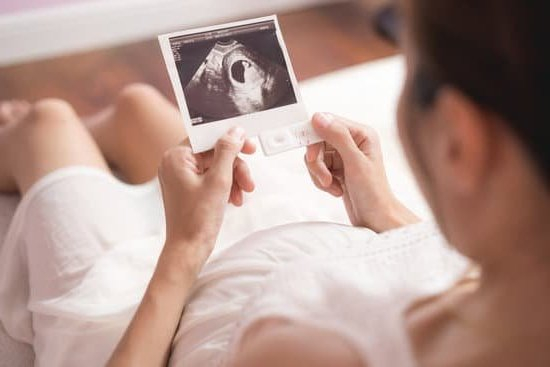Introduction
Hand Foot And Mouth Disease (HFMD) is a viral disease that is caused by the Coxsackievirus A16. It is common in children, but symptoms can appear in adults. Symptoms may include rash, fever, sore throat, fatigue, and loss of appetite. The rash usually affects the palms of the hands and soles of the feet as well as on the tongue and cheeks. In rare cases it could also affect other parts of the body such as legs, arms and buttocks. Furthermore, some people may experience painful sores inside their mouths which can cause them to have difficulty eating or drinking.
For expectant mothers, it is important to be aware of any risks posed by HFMD while pregnant. These risks include increased chances of miscarriage or premature birth if contracted early in pregnancy as well as possible transmission to her unborn child during delivery (though this is very rare). It can also lead to an infection in infants whose skin blisters have not healed within two weeks after birth. Additionally, there is a risk for pregnant women themselves if they contract HFMD with potential complications such as encephalitis and/or meningitis requiring hospitalization. Therefore it is important for expectant mothers to be aware of the signs and symptoms associated with HFMD and seek medical attention if they suspect that they might have contracted it while pregnant.
Risk Factors
Hand Foot And Mouth Disease (HFMD) is a common skin rash caused by a virus and can affect pregnant women. During pregnancy, the immune system is weaker than usual which means that pregnant women are at greater risk of developing the disease due to their reduced immunity. It is therefore important to be aware of risk factors associated with the contraction and spread of HFMD during pregnancy. Such risks include contact with an infected individual, attending daycare or work in close quarters with other people, as well as exposure to public places where children are often present.
For the developing fetus, there are two primary concerns when it comes to HFMD: transmission during delivery, and exposure through breastmilk following birth. There have been rare cases reported where the virus has been transferred from mother to baby during labor or delivery, but this is extremely uncommon. Additionally, even if the virus was passed from mother to baby in utero it would not typically cause severe complications for the newborn; generally speaking babies born after exposure will receive just minor signs of infection such as a fever or rash.
Majority of transmissions occur through contact with fluids from an infected person so if you know someone who has tested positive for HFMD it’s key to practice social distancing and good hygiene including frequent hand-washing and avoiding saliva contact with those infected until they are no longer symptomatic. Unlike other illnesses such as Zika, chickenpox or rubella, there is no current evidence that suggests that contracting HFMD while pregnant would cause any major health defect in the infant; however it’s still important for expectant mothers to be mindful of symptoms so that proper medical care can be provided if anything appears amiss.
Diagnosis
In order to accurately diagnose Hand Foot And Mouth Disease (HFMD) in pregnant women, it is important they consult a healthcare professional such as their obstetrician or physician. Doctors can test for signs of the disease through a blood sample, throat swab, or better yet, visually inspect any blisters or rash that may be present. Once HFMD is diagnosed, pregnant women should receive careful medical supervision and treatment in order to avoid any complications for both themselves and their unborn baby. Treatment typically involves a combination of topical creams, fluids, antibiotics and rest so that mothers-to-be reduce the symptoms and risk to their growing baby. If there are concerns from HFMD during pregnancy, it helps to seek regular medical advice from a healthcare doctor to monitor any issues.
Treatment
Hand Foot and Mouth Disease, also known as HFMD, is a generally harmless viral infection common in young children and is caused by a group of viruses linked to the enterovirus family. While it is usually milder in adults, pregnant women may have more severe symptoms which can make it especially important to seek medical attention if needed. Treatment for Hand Foot and Mouth Disease in pregnant women typically involves taking measures to reduce fever, sore throat, and body aches through rest, fluids, and over-the-counter medications such as ibuprofen. It’s also important to pay attention to blisters or sores – extra care should be taken such as frequent hand washing or keeping the area clean with antiseptic solutions. If further pain relief or fever reduction are required then doctors may prescribe oral antibiotics or antiviral medication such as aciclovir.
Prevention
Expectant mothers should take several steps to prevent contracting hand, foot, and mouth disease:
• Keep your hands clean by washing them with soap and warm water regularly.
• Avoid contact with people who are actively infected with the virus.
• Do not share utensils, towels, drinks or other objects with anyone who has been diagnosed with hand foot and mouth disease.
• Disinfect regularly touched surfaces such as doorknobs, light switches and faucets.
• Avoid kissing or touching children that have active outbreaks of the virus.
• Maintain a healthy diet, especially one rich in fruits and vegetables that contain essential vitamins and minerals.
• Ensure any daycare facility your child will attend is following proper sanitation procedures such as regular diaper changing and cleaning of toys in between uses.
Conclusion
Expectant mothers should be aware of the risks that come with having hand, foot and mouth in pregnancy. To ensure their own health and safety, expectant mothers should practice proper hygiene habits during their pregnancy. This includes frequent hand-washing with soap and water for at least 20 seconds; using alcohol-based sanitizing products when soap and water are not available; practicing social distancing measures when around other people; avoiding close contact with those who have become sick; avoiding international travel if possible; eating a healthy diet rich in vitamins and minerals, drinking plenty of fluids, getting adequate rest and exercise, avoid smoking or drinking substances, consulting with a doctor before taking medications or supplements, and get vaccinated when appropriate. Ultimately by following these precautions, pregnant women can mitigate any potentials risks associated with having hand, foot and mouth during pregnancy.

Welcome to my fertility blog. This is a space where I will be sharing my experiences as I navigate through the world of fertility treatments, as well as provide information and resources about fertility and pregnancy.





